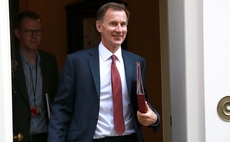Shadow culture secretary calculates 200,000 will not be able to afford internet access after 50p tax
The Tories have pledged to deregulate the market and encourage private sector investment Tory shadow culture secretary Jeremy Hunt has claimed the government's 50p-per-landline tax to fund the un...
To continue reading this article...
Join Computing
- Unlimited access to real-time news, analysis and opinion from the technology industry
- Receive important and breaking news in our daily newsletter
- Be the first to hear about our events and awards programmes
- Join live member only interviews with IT leaders at the ‘IT Lounge’; your chance to ask your burning tech questions and have them answered
- Access to the Computing Delta hub providing market intelligence and research
- Receive our members-only newsletter with exclusive opinion pieces from senior IT Leaders




















